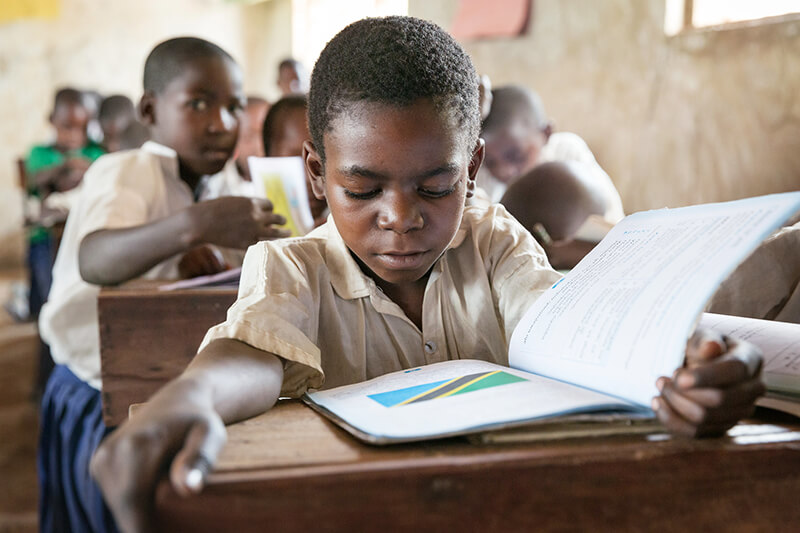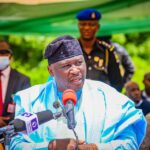The Yoruba culture, in which I was raised, is famous for instilling in children, the need to respect elders.
We bow our heads to greet older people, and even kneel, or prostrate. You dare not call your elders by name in traditional Yoruba culture, and you generally show a lot of respect to people. Looking at an elder straight in the eye is abominable and wouldn’t be tolerated. While these cultural traits of the Yoruba people in Nigeria are not shared by all the other ethnic groups in Nigeria, I was awed to discover that they are in some Asian cultures, with the indigenous South Korean culture being a perfect example. I felt at home very easily when I temporarily relocated there.
Another aspect of the Yoruba people, which, incidentally, is also shared by the Korean people, is that we always pray that our children achieve much more than we do, that they will be more successful, better educated, and be better off than we are in all aspects of life. This partly explains why the Yoruba family is usually very educated, in a tradition that dates to almost a century. Who can forget Chief Obafemi Awolowo’s education legacy in the old Western region of Nigeria? Those efforts helped to make the Yoruba people the most educated in Nigeria for a very long time. Education became our trade.
With this background, it is quite uncomforting to observe the degradation of education in Nigeria as a whole, and in the Yoruba people in particular. Because I have been away from the country for so long, I am not quite privy to the exact cause of the problem, but I do see its manifestations everywhere. Infrastructure in schools is grossly inadequate, pupils and students cannot afford the textbooks, and teachers are not as well trained, since they too are products of the same low-quality education. The problem also extends to tertiary education.
We did not have this kind of problem when I was a secondary school or undergraduate student in Nigeria in the seventies. In fact, when I arrived in the US in 1981 to pursue further studies, Nigerians coming to the US who had their secondary school education in Nigeria felt superior to their American counterparts, as American education was generally believed to be inferior to the education in Nigeria. It was considered to not be as rigorous. The main reason for the attitude is that students who couldn’t pass WAEC in Nigeria, went on to do very well in America. So, in those days in Nigeria, degrees from American universities were looked down upon, and generally judged to be inferior to those from Nigerian universities, such as the University of Ibadan – which was once a College of the University of London in the UK, – Ahmadu Bello University, and The University of Lagos. However, I am not sure I can make the same statements today about the current state of education in Nigeria.
As if the situation is not bad enough, COVID-19, the pandemic that originated from Wuhan, China, came full-swing in March 2020, turning the whole world upside down. No single spot on the globe has been spared by this pandemic. America is hurting, so is Europe. Although the casualties from the pandemic is quite modest so far in Nigeria by comparison to, say, America, the negative impact on people’s personal and financial lives is already quite significant.
Education is hard hit by COVID-19 as in-person lesson delivery had to give way to the less-desirable and more-resource-demanding online delivery. That’s certainly where the problem lies. How bad is the problem? How do students cope? Whither solutions to the digital divide problem? What interventions are available? Where do we go from here? These are some of the questions that need to be answered as we battle this difficult period in our lives.
How do we pick up the pieces? I am not aware of the concerted efforts being made by the government to address the problem on a national scale, although the direct responsibility probably falls on the state and local governments. As expected, the states in the old Western region are perhaps a step ahead in mitigating the effects of COVID-19 on education. Emmanuel Akinwotu writes in the UK Guardian on 24 June 2020 about how Lagos State is distributing free phones to pupils to bridge the digital divide. Lagos schools were closed in March because of COVID-19, and class delivery switched from in-person to lessons over radio, TV, and the Internet. Programs set up by the Lagos city authorities for public schools have reportedly aired on television and radio, following statewide timetables.
The endemic infrastructure problem in Nigeria, which is electricity, has reared its head once again, to undermine the efforts being made to mitigate the effects of COVID-19 on education. Power supply to home is sketchy, even in Lagos, meaning that students cannot access online classes. Taking advantage of freely distributed smartphones with curriculum data preloaded, and with video, audio, and chat capabilities, encounters the challenge of the lack of power supply. As I have written numerous times before, failure of the Nigerian government and/or private power companies to supply constant electricity will perpetually undermine the progress of the country in virtually every aspect.

 Join Daily Trust WhatsApp Community For Quick Access To News and Happenings Around You.
Join Daily Trust WhatsApp Community For Quick Access To News and Happenings Around You.


